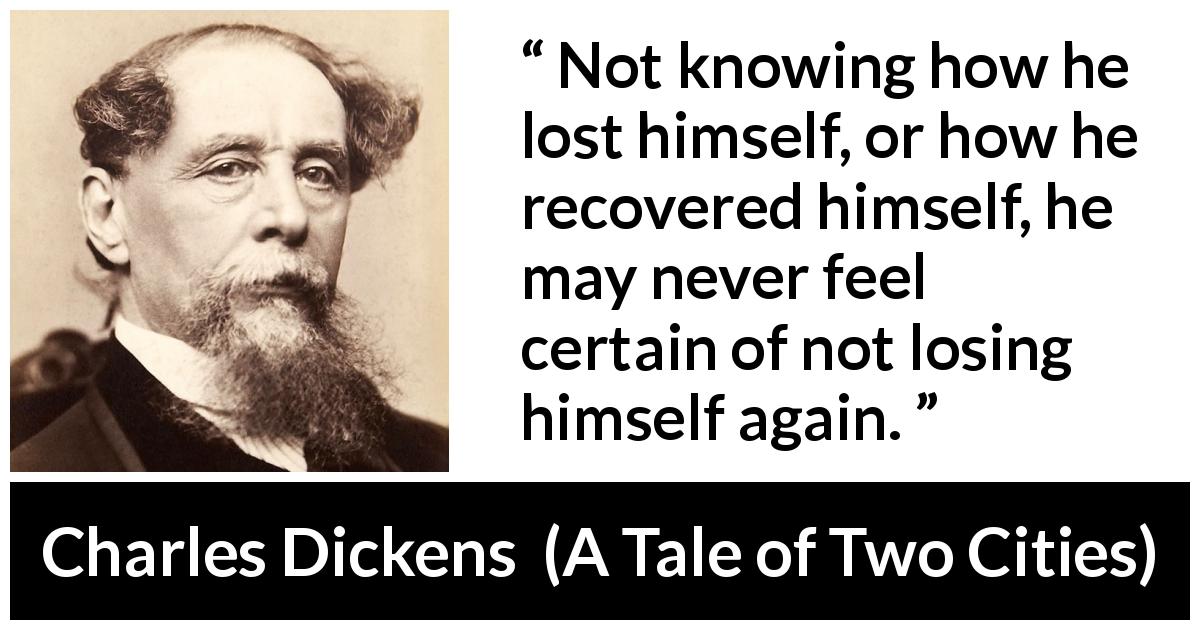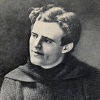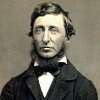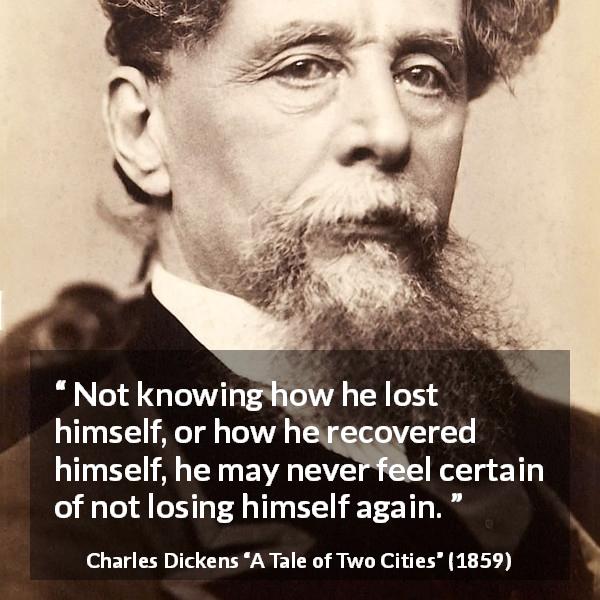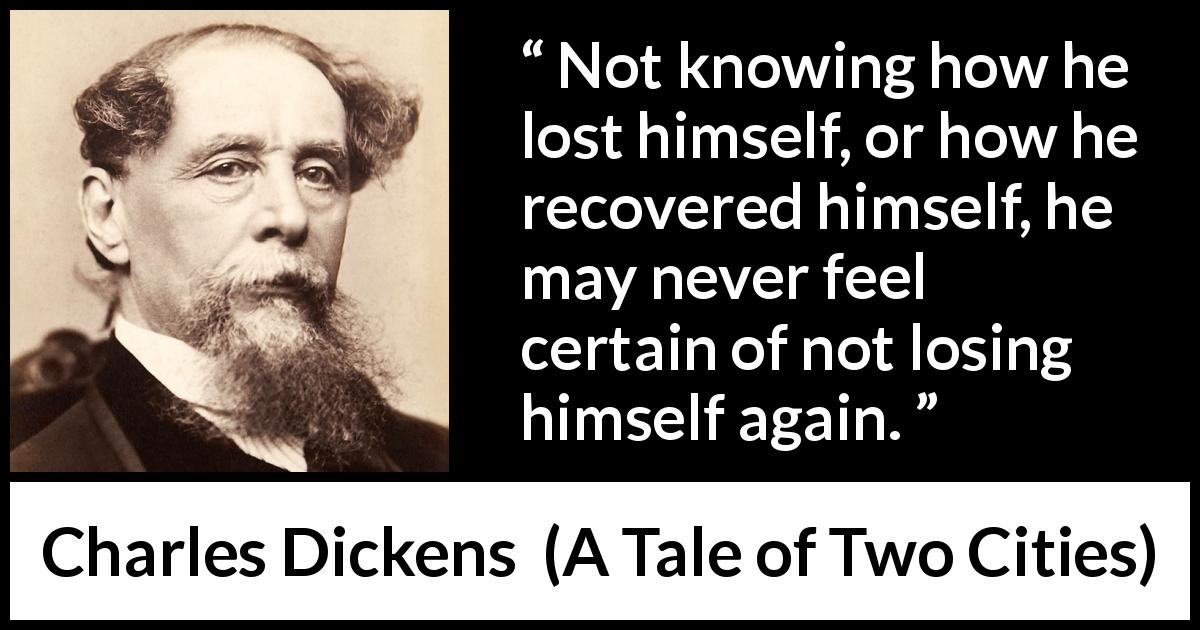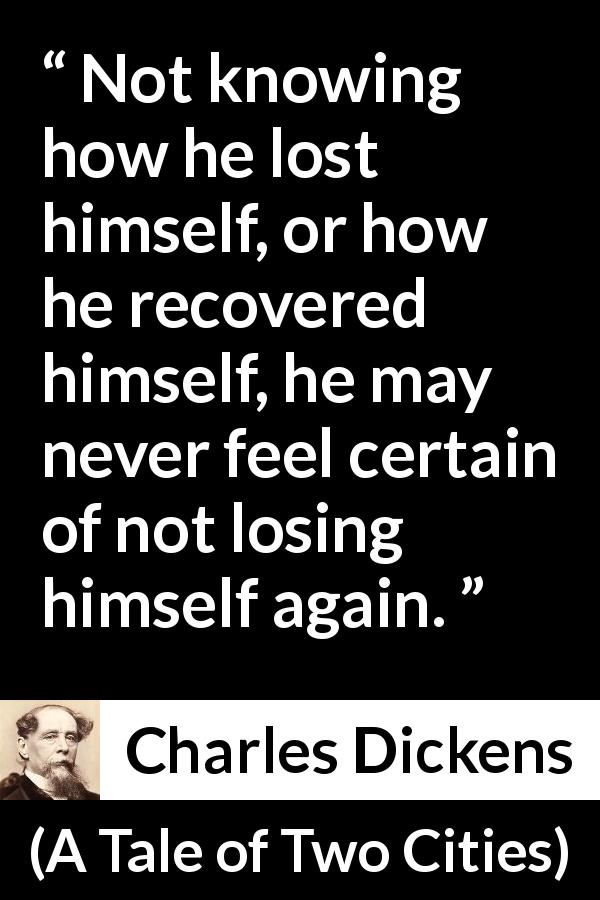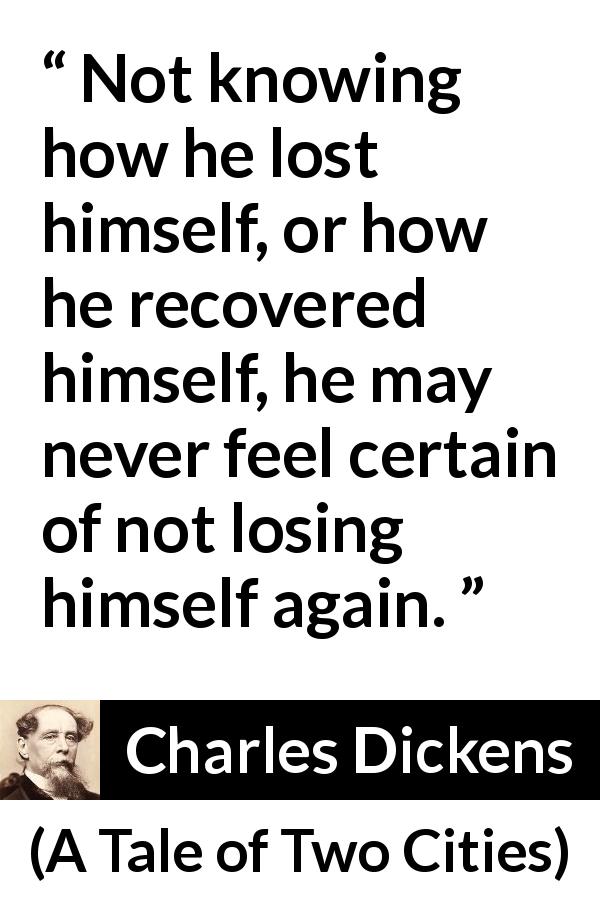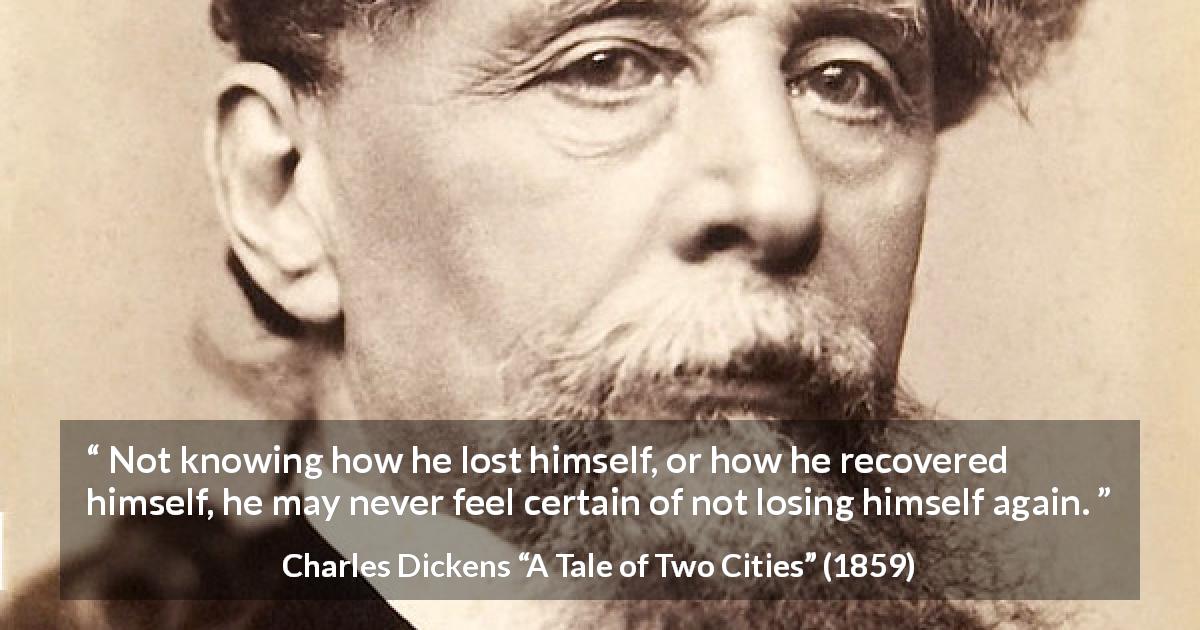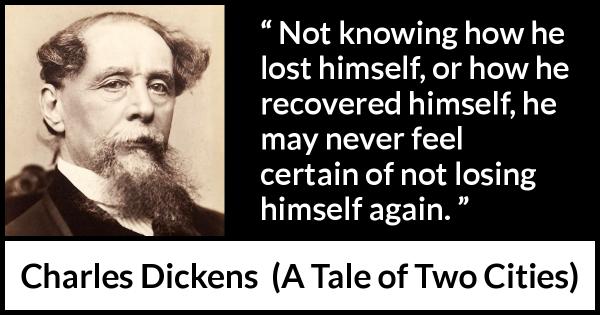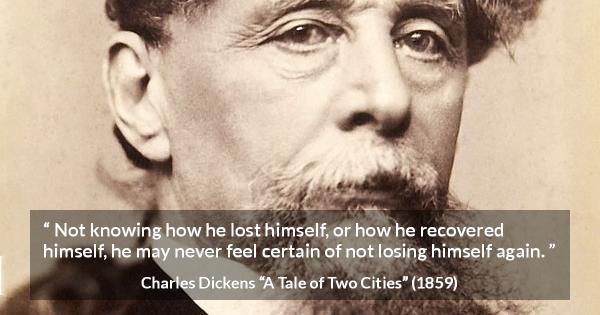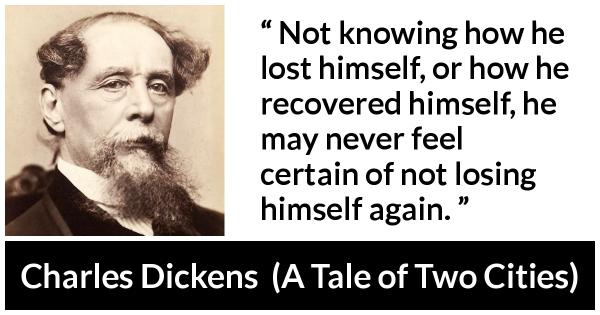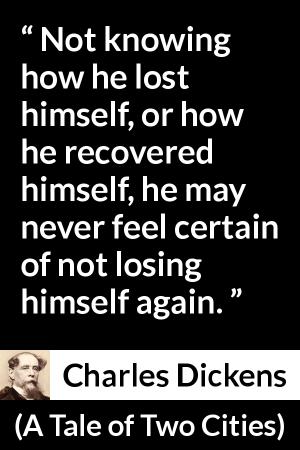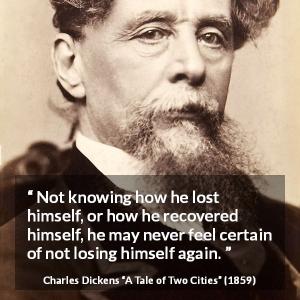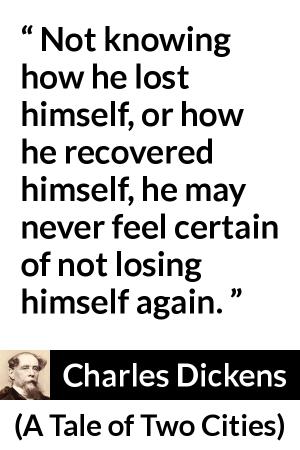“ Not knowing how he lost himself, or how he recovered himself, he may never feel certain of not losing himself again. ”
Charles Dickens, A Tale of Two Cities (1859). copy citation
| Author | Charles Dickens |
|---|---|
| Source | A Tale of Two Cities |
| Topic | uncertainty recovery |
| Date | 1859 |
| Language | English |
| Reference | |
| Note | |
| Weblink | https://www.gutenberg.org/files/98/98-h/98-h.htm |
Context
“To the best of my understanding, and bad's the best, you'll tell me,» said Miss Pross, softened by the tone of the apology, «he is afraid of the whole subject.»
«Afraid?»
«It's plain enough, I should think, why he may be. It's a dreadful remembrance. Besides that, his loss of himself grew out of it. Not knowing how he lost himself, or how he recovered himself, he may never feel certain of not losing himself again. That alone wouldn't make the subject pleasant, I should think.»
It was a profounder remark than Mr. Lorry had looked for. «True,» said he, «and fearful to reflect upon. Yet, a doubt lurks in my mind, Miss Pross, whether it is good for Doctor Manette to have that suppression always shut up within him.” source
«Afraid?»
«It's plain enough, I should think, why he may be. It's a dreadful remembrance. Besides that, his loss of himself grew out of it. Not knowing how he lost himself, or how he recovered himself, he may never feel certain of not losing himself again. That alone wouldn't make the subject pleasant, I should think.»
It was a profounder remark than Mr. Lorry had looked for. «True,» said he, «and fearful to reflect upon. Yet, a doubt lurks in my mind, Miss Pross, whether it is good for Doctor Manette to have that suppression always shut up within him.” source
